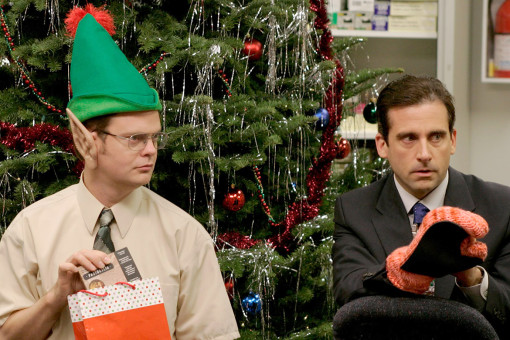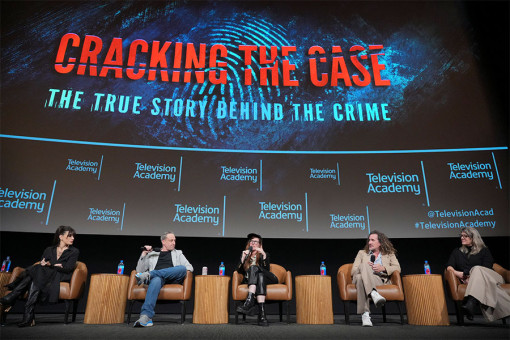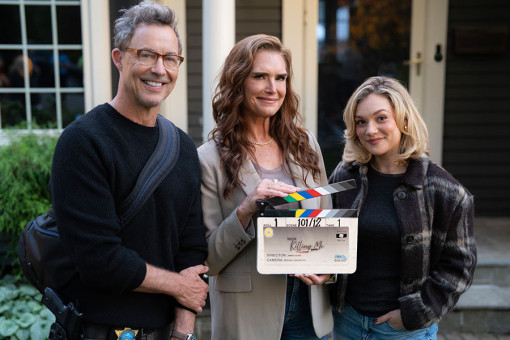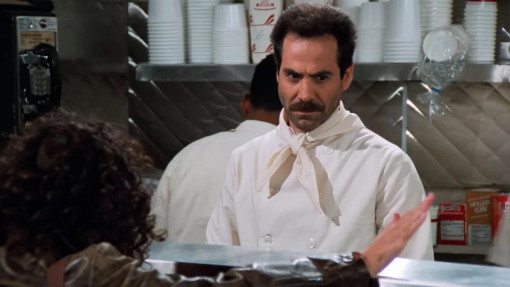The offer came in as Ahmir “Questlove” Thompson was finishing a project that would transform and amplify his sprawling creative life — after the pandemic had slowed down his busy career as the self-described “king of yes.”
Already, he’d done a lot. As bandleader of legendary rap group The Roots, he also shepherds their work as house band for NBC’s The Tonight Show Starring Jimmy Fallon. He’s produced artists ranging from D’Angelo to Elvis Costello. He’s performed as a DJ for the Academy Awards and at the White House. He’s got a podcast, Questlove Supreme, and had a web series, Quest for Craft. He’s written books, including a look at creativity called Creative Quest and 2024’s Hip-Hop Is History. He even served as an executive producer for CBS’s A Grammy Salute to 50 Years of Hip-Hop.
But back in the summer of 2020, he was contemplating saying no more often. That’s when he was editing Summer of Soul (…Or, When the Revolution Could Not Be Televised) — an evocative and telling look at the 1969 Harlem Cultural Festival; the film went on to win the Oscar for Best Documentary Feature.
Thompson remembers a rueful thought while looking at footage of Sly Stone’s performance from that festival — just before the funk and soul pioneer would play the much higher profile Woodstock festival and become a genre-bending star.
“Sly doesn’t even know that, in exactly 10 days, his life is going to flip upside-down,” Questlove recalls thinking. “It’s going to be the most surreal three-year period in his life. And I said, ‘Man, somebody needs to do a documentary on that.’ I want to see the story of Sly Stone and what happens to him after Woodstock. Because it’s the craziest set of occurrences.”
Twenty-four hours later, the rapper and actor Common called with an idea. He owned Sly Stone’s life rights, had heard about Summer of Soul, and wanted to know if Thompson was interested in directing a documentary about Stone after he finished his current film.
Just like that, Questlove was saying yes one more time.
“After [Summer of Soul debuted at Sundance], I guess that was the green-light indication that I might know what I’m doing with these music stories,” Thompson says, laughing.
“And then, right after the Oscar, six offers came in, and the next thing I know I was like, ‘Yeah, I’ll take that.’ And now I’m stuck. It’s a good problem to have.”
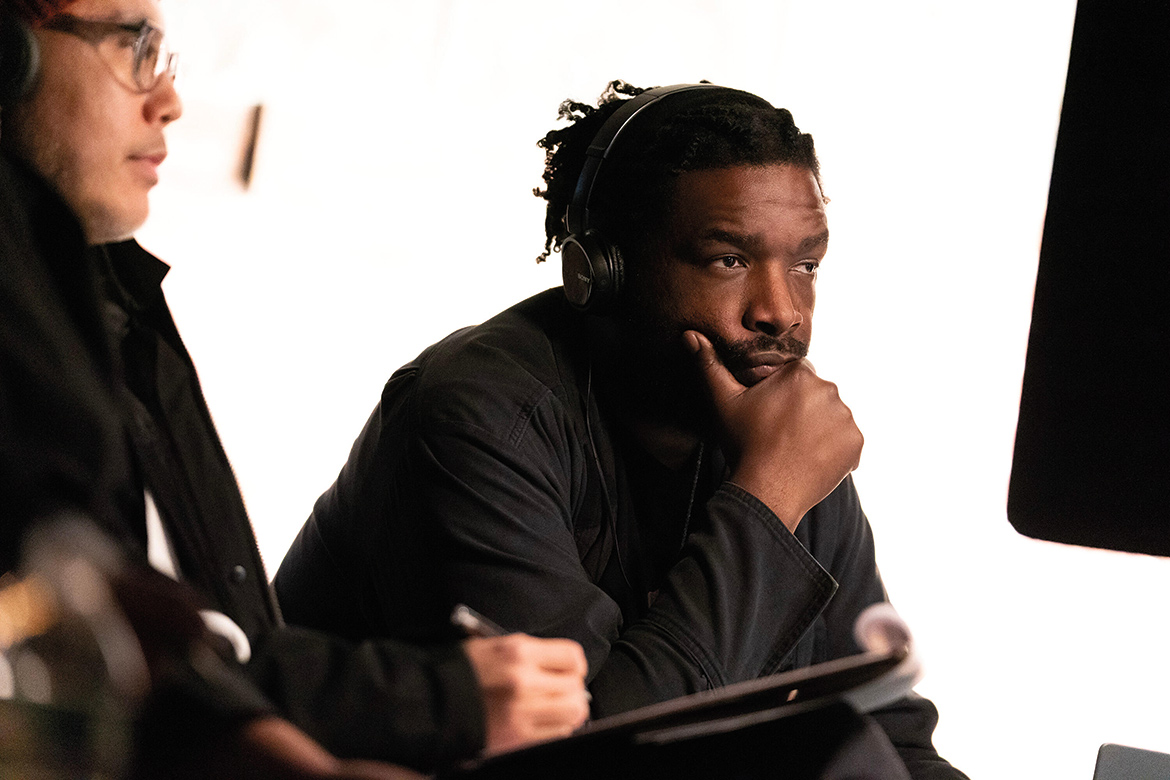
One of those offers came in a similarly fortuitous way, when he was summoned to meet Saturday Night Live impresario Lorne Michaels in the show’s offices at 30 Rockefeller Center in New York.
“I was thinking, ‘Wait, finally my dream’s coming true and you’re asking The Roots to be musical guests on the show?’” Thompson says. “Lorne just said, ‘You know, in about four years, it’s going to be the 50th anniversary of SNL. I love what you did with Summer of Soul; would you like to do this [documentary on SNL’s musical history]?’ And so, instant yes.”
That's how Thompson came to direct two of the biggest musical documentaries of early 2025, released within weeks of each other: Ladies & Gentlemen … 50 Years of SNL Music, streaming on Peacock, and Sly Lives! (aka the Burden of Black Genius), available on Hulu and Disney+. Each offers a detailed, knowing look at its subject, with expert interviews, sharp ideas and storytelling styles that unfold like the world’s coolest club mix.
“He’s worked on some of the most incredible records of all time. Of course, he’s a musical genius,” says Joseph Patel, who worked closely with Thompson as a producer on Summer of Soul and Sly Lives! “But he also has this desire to be a storyteller. He absorbs everything, but he’s still curious. We’re constantly chatting about theories that he has. He’s constantly trying to make sense of things.”
Patel says Thompson brings big ideas to help frame and shape the stories he wants to tell. “In our first conversation about Sly Lives!, he talked about this theory that Sly was the first Black artist who crossed over into the rock world and was heralded as a rock god by both Black and white audiences — and then didn’t have a blueprint to handle that.”
Sly Lives! explores the extreme pressure Stone felt to cope with Black and white audiences’ differing expectations, and how it led to self-destructive behavior: substance abuse, showing up late (or not at all) to concerts and more. The film features commentary from artists like D’Angelo and Chaka Khan, who faced similar struggles; though they’re ostensibly talking about Stone, they also seem to be addressing their own struggles.
“We see [echoes of Stone’s] behavior in a lot of artists we admire and a lot of contemporaries of Ahmir’s,” Patel says. “He talked about his own struggles with success and the guilt that comes with that — survivor’s guilt. He talked about D’Angelo on the Voodoo tour [in 2000] and the pressure D’Angelo felt to take his shirt off at the end of the show to a screaming throng of fans, when he just wanted to play music. Ahmir was constantly thinking about that.”
“When I would ask people [to speak in the film], their first response was, ‘Well, I don’t know that much about Sly, so I can’t do this,” Thompson says. “And I [would say], ‘Matter of fact, it’s better if you don’t talk about Sly. I’m not asking you questions about Sly. I’m asking questions about you.’ We would like to get in the mind-state of how an artist feels. I told them, ‘This could be very cathartic for you to talk about. Because oftentimes, fans don’t really care how you feel.’”
Thompson has spent a lifetime negotiating the pitfalls of an artist’s existence. Born and raised in Philadelphia, he cut his musical teeth touring with his father’s doo-wop group, Lee Andrews & the Hearts, filling in on drums at just 12 years of age. He met longtime creative partner Tariq “Black Thought” Trotter at the Philadelphia High School for the Creative and Performing Arts — where their classmates included future superstar jazz bassist Christian McBride and members of Boyz II Men — and the two formed a drummer-MC duo that evolved into The Roots in the early 1990s.
Though his love for pop culture, boundless creativity and herculean work ethic have led Thompson to everything from founding a book-publishing imprint to teaching at New York University, he admits that directing Summer of Soul provoked more than a few bouts of imposter syndrome. Eventually he realized the pandemic was forcing everyone in the film world to learn how to do things differently.
“I found it very odd and apropos that a first-time director was learning in real time what the new normal was going to be for the rules of directing,” he says, recalling having to guide film crews remotely with his iPhone. “Anything you create, you have to just trust-fall into it and make sure you’re doing a project that is bringing you joy in your heart.”
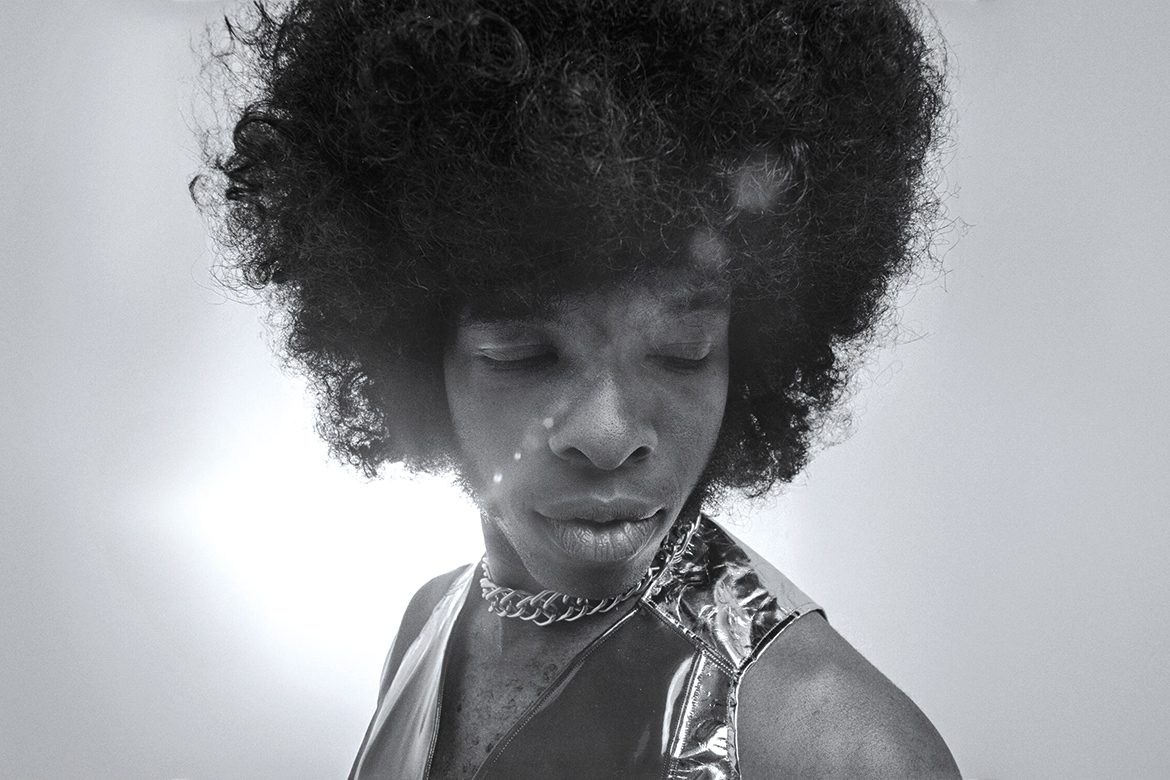
Sly Lives! charts Stone's expansive, eclectic and pioneering career. Born Sylvester Stewart in Texas and raised in the Bay Area, he was — before his own chart-topping years — a renowned radio DJ in the early 1960s and later produced artists like The Beau Brummels for the San Francisco–based pop record label Autumn Records.
“One point I wanted to make was that Sly is a major presence on radio for five years before he starts recording himself,” Thompson says. “He starts as a radio DJ in 1961, when the transistor radio has the same power as Spotify today. Those teenage kids with transistor radios in the Bay Area are eventually going to become the counterculture hippies, like Sly raises them.”
Eventually Stone formed Sly and the Family Stone with relatives and friends — breaking ground with a mixed-gender band rooted in Black music and featuring white and Black members. They charted a string of huge hits, from “Dance to the Music” (1967) and “Everyday People” (1968) to “Family Affair” (1971) and “If You Want Me to Stay” (1973). But by the mid-1970s, Stone’s erratic behavior and substance abuse contributed to the band’s dissolution, and his career never recovered.
In Sly Lives!, Thompson features clips from an interview Stone did in 1982 with a fresh-faced Maria Shriver, who asked about his self-destructive tendencies with a blunt question: “You were at that place that every musician wants to be. You get there, and you blow it?”
“This film changed me personally, because I definitely came in the door trying to mirror [Shriver] … to create as close to an intervention talk to my community as I could,” Thompson says. He wanted to start a conversation about the unique pressure Black artists face, and how they can lead to self-sabotaging behavior even amid great success.
“The hardest part of this film, the reason it took two-and-a-half years, is because I requested 19 talking heads for this film,” he adds. “I got D’Angelo, [A Tribe Called Quest’s] Q-Tip and [Outkast’s] Andre 3000, but the amount of people that stood us up …. Talking about our feelings is just a brand-new concept and leaves people in a state of mistrust.”
Thompson believes artists’ reluctance to show vulnerable emotions comes from the way Black people have learned to avoid trauma and oppression by hiding in plain sight. “Not many people know that the history of ‘cool’ is literally to be devoid of emotion,” he notes. “You don’t know if I’m happy or sad; you just lay in the cut, very quiet. And just like with soul food, we made something toxic sexy. But to be emotionless puts you in a position where your mental and physical health might be up for grabs. And not in a good way.”
One talking head who doesn’t appear is Sly Stone himself. He’s represented by clips from three interviews recorded at crucial moments in his past. Thompson says he interviewed Stone, who is now 82, for Summer of Soul, but Thompson wasn’t happy with the footage.
“He’s not in the best of health, and it would have been too distracting, very jarring,” he says, adding, “No interview now was ever going to match the type of reflection [found in the other interviews], because these journalists just asked him the rawest questions ever.”
Patel says he and Thompson share the goal of using specific stories to explore larger ideas about society, art and artists. “Sly Lives! is about an artist — the rise, reign and fall of one of the great American artists of all time,” he adds. “But we extrapolate that into this idea Ahmir has that Black artists aren’t allowed to be fully human. They’re not allowed to go through the spectrum of emotions and behavior that any normal human being would go through. And so, Ahmir brings this big idea, and it’s sort of my job to build it.”
Whenever anyone talks about Thompson’s documentary on SNL’s music, the first thing that comes up is the montage.
It’s difficult to describe for anyone who hasn’t seen the first seven minutes of Ladies & Gentlemen … 50 Years of SNL Music. Somehow, Thompson and his producers weaved together a long sequence of clips featuring artists performing on Saturday Night Live, mixed so that the sounds from some performances blended with others, as footage from different performances plays together on split screens.
In this way, Prince’s performance of “Partyup” blends with Rick James’s “Super Freak” so that it sounds — if only for a moment — like the two famous funk rivals were playing together at the same time in SNL’s legendary Studio 8H.
Ditto with footage of Cher singing “I Found Someone” into Hanson’s “MMMBop,” Run-DMC’s “Walk This Way” with Hall & Oates’s “I Can’t Go for That (No Can Do)” and Queen performing “Under Pressure” blending into Dave Matthews Band’s “Ants Marching,” alongside Vanilla Ice’s “Ice Ice Baby” and Fine Young Cannibals’ “She Drives Me Crazy.”
Producing that sequence took about 11 months, and it was assembled after Thompson had managed the herculean feat of watching every episode of Saturday Night Live and chronicling every musical performance — the beats per minute, the keys of the songs and other nuances that would eventually allow the team to mix and match each musical performance over 50 years.
“I wanted to build a world where Prince and Rick James do a duet together,” he says. “And then we just built on that. Once I got the hard drive [containing every SNL episode], I went through three to seven episodes in a day. On the weekend, I’d get up at 8 in the morning and lay in bed until 6 or 7 p.m., just binge-watching and taking meticulous notes. Around the fourth month, I was like, ‘There are way more magical musical sketches than just the performances.’”
Thompson even used his connections to get an on-camera interview with Eddie Murphy, who hadn’t spoken with any other documentarians making NBC-connected films for SNL’s 50th anniversary.
“That was the one interview where I was starstruck,” says Oz Rodriguez, a longtime director of short pretaped SNL videos, who served as codirector on Ladies & Gentlemen. Rodriguez adds that Thompson’s extensive network often helped smooth over issues. “Sometimes we’d have trouble clearing an artist [getting permission to use a song or performance], and he’d say, ‘Let me text him.’ Problem solved.”
Toward the beginning of Sly Lives! Thompson asks a question that he spends the rest of the film trying to answer: What is Black genius?
“Black genius is the ability to survive the day intact … literally, to survive the day and not get in your own way,” he says. “You can have separation anxiety and guilt, the feeling that you can’t save people, you can’t take them with you. That’s the burden. I think a lot of us [Black artists] just live it and don’t think about it or even talk about it.”
Sly Lives! is now streaming on Hulu.
This article originally appeared in emmy magazine, issue #4, 2025, under the title "Music Lessons"




